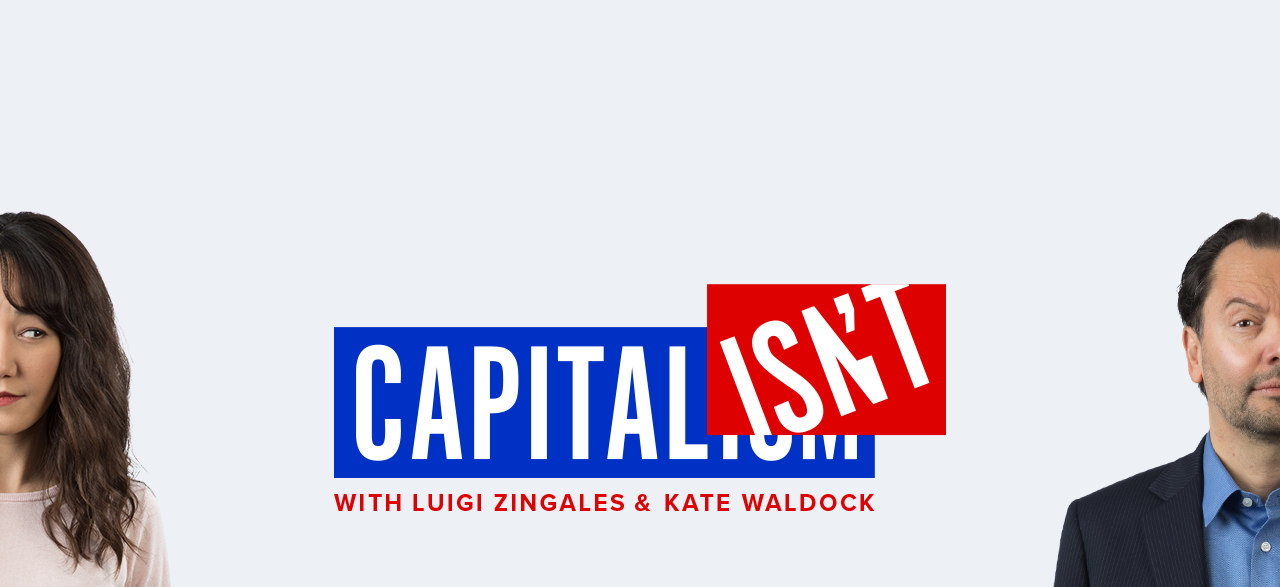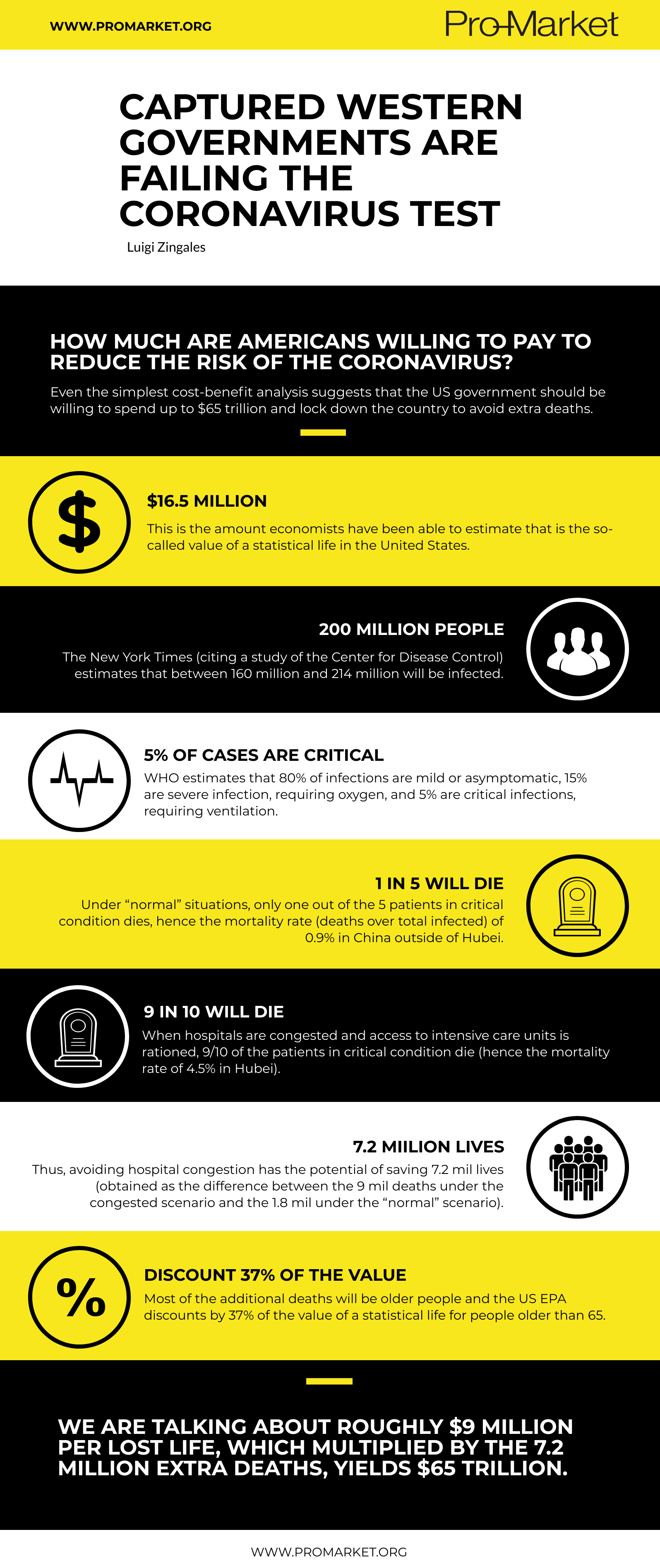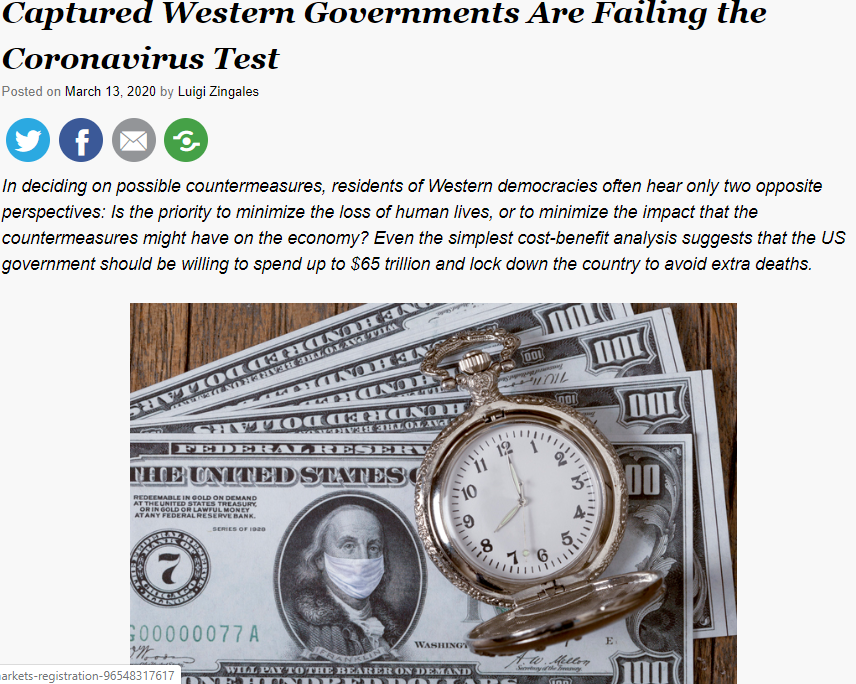One of the prominent economic debates to emerge during the coronavirus outbreak has been whether to continue with shelter-in-place measures that are hurting the economy but, hopefully, slowing the virus’ spread. Luigi Zingales and Kate Waldock discuss a cost-benefit analysis of social distancing and economic shutdown with Hoover Institution’s Russ Roberts.

One of the prominent economic debates to emerge during the coronavirus outbreak has been whether to continue with shelter in place measures that are hurting the economy but, hopefully, slowing the virus’ spread.
In this episode, Luigi Zingales does a cost-benefit analysis that shows why it could be better to keep the economy closed, and debates his proposal with Kate Waldock and Russ Roberts, host of the popular EconTalk podcast.

Russ Roberts is the John and Jean De Nault Research Fellow at the Hoover Institution.
He founded the award-winning weekly podcast EconTalk in 2006. Past guests include Milton Friedman, Martha Nussbaum, Thomas Piketty, Christopher Hitchens, Bill James, Nassim Taleb, Michael Lewis, and Mariana Mazzucato.
All 675+ episodes remain available free of charge at EconTalk.org and reach an audience of over 100,000 listeners around the world.
If you liked the episode, read this piece by Luigi Zingales, which opened a lively debate on the cost-benefit analysis of social distancing and economic shutdown:
We also prepared an infographic version of Zingales’s cost-benefit analysis:







